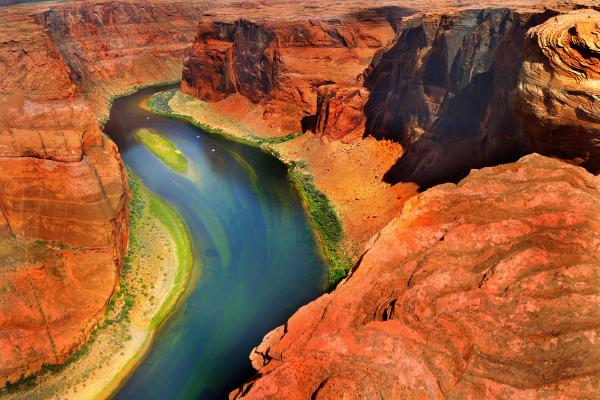Can Dietary Changes Help Save the Colorado River?

As climate change accelerates, the relationship between food and the environment becomes increasingly apparent. In the Western United States, the depletion of the Colorado River has become a critical issue, and recent studies suggest that adjusting global dietary habits could significantly mitigate the strain on this vital water source.
A recent study published in Nature's Communications Earth & Environment revealed that nearly half—46%—of all water diverted from the Colorado River is used to grow feed for beef and dairy cows. This water consumption is almost double that of all the cities that rely on the river, including Phoenix, Las Vegas, and Los Angeles. Brian Richter, the study's lead author, emphasized that substantial water cuts would be needed for agriculture, which is the primary user of Colorado River water.
The challenge is intensified by the looming 2026 deadline when the rules governing water distribution from the river, established more than a century ago, will expire. The seven Western states—Colorado, New Mexico, Utah, Wyoming, California, Arizona, and Nevada—are negotiating how to share the diminishing water supply.
The Imperial Valley in Southern California is one of the largest agricultural users of the Colorado River. Here, farmers grow not only winter vegetables but also significant amounts of alfalfa and hay to feed cattle. Trevor Tagg, a farmer in the Imperial Valley, explained that while crops like onions require less water than alfalfa, they also come with greater labor costs and longer time to market, making them a less attractive option for farmers seeking stable profits.
Experts like Bill Hasencamp, the Colorado River resources manager for the Metropolitan Water District of Southern California, point out that while individual changes, such as shorter showers, help conserve water, addressing beef and dairy consumption could have a far greater impact, noting that even small shifts in eating habits could add up over time.
Alfalfa farming in the desert may seem counterintuitive, but the fertile soil and predictable climate make the Imperial Valley an agricultural powerhouse. However, it also requires vast amounts of water. Farmers are adopting water-saving techniques such as pipe irrigation and crop rotation to use less water. Some, like Tagg, even participate in federal programs that pay farmers not to grow water-intensive crops during dry months.
According to climate scientists like Jessica Fanzo from Columbia University, the larger picture is that reducing meat and dairy consumption is essential for a sustainable future. Cattle, through their methane emissions, are significant contributors to greenhouse gases, and the U.S., as a major beef producer, has a substantial role in shaping global demand.
Small dietary changes—such as eating beef less frequently or choosing plant-based alternatives—can collectively help reduce water use and greenhouse gas emissions.
As climate change continues to reshape our world, consumers, farmers, and policymakers must consider how their choices impact the environment and future generations. A shift toward sustainable eating could relieve pressure on the Colorado River and help address the broader climate crisis.
To learn more visit NPR Morning Edition's Climate Solutions Week.
